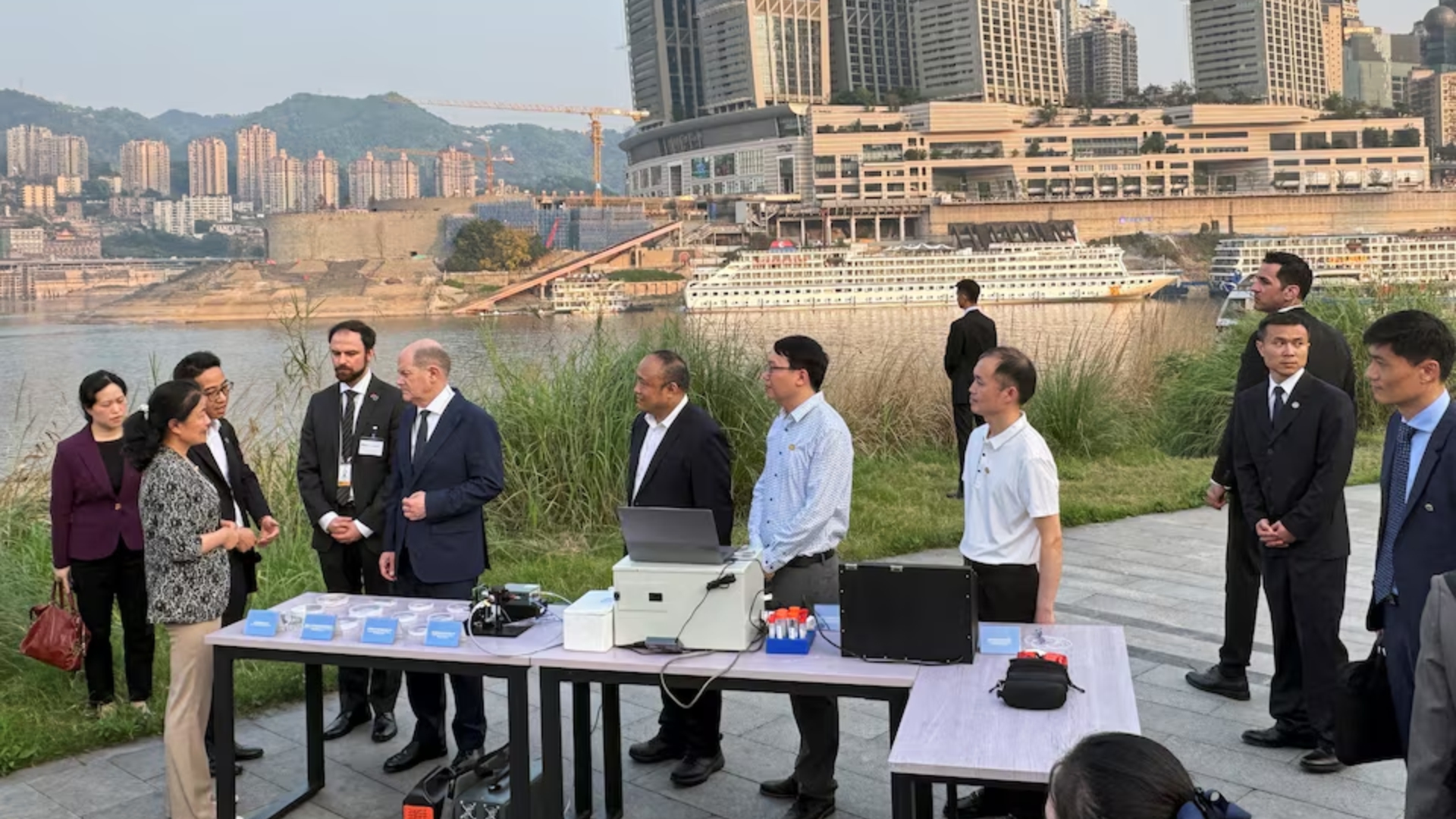SHANGHAI, (Reuters) – German Chancellor Olaf Scholz on a visit to China on Monday pressed his case for open and fair markets, warning his hosts against dumping and overproduction while calling for the European Union not to act out of protectionist self-interest.
Scholz’s trip to China, in which he is accompanied by several leading German business executives as well as three ministers, is being watched for signs as to how Europe will calibrate its response to what it believes are Chinese goods being dumped on its market.
The three-day visit is Scholz’s first to China since his government launched a “de-risking” strategy last year to avoid tethering Germany too closely to the world’s second largest economy.
The trip has been overshadowed by Iran launching a barrage of drones and missiles at Israel over the weekend in an attack that fuelled fears of a wider regional conflict.
Scholz warned Iran not to launch more strikes but also joined other Western leaders in calling for Israel to help cool tensions.
China is expected to press Berlin not to back threatened European Union measures against Chinese cars, solar and wind park equipment.
“At some point there will also be Chinese cars in Germany and Europe. The only thing that must always be clear is that competition must be fair,” Scholz told students at Tongji University in Shanghai.
“In other words, that there is no dumping, that there is no overproduction, that copyrights are not infringed,” Scholz said, adding it was important to allow companies to set up production facilities locally without bureaucratic hurdles.
However, when asked later about calls by EU Commission President Ursula von der Leyen for the bloc to protect itself from Chinese overcapacity, Scholz expressed reservations.
Scholz will raise the issue of fair competition at a meeting with Chinese President Xi Jinping on Tuesday.
“But this must be done from a position of self-confident competitiveness and not from protectionist motives,” he said, comparing worries about Chinese cars to previous, in his view unfounded, anxieties about Japanese and South Korean cars.
FEARING THE NEIGHBOURS
Scholz plans to question President Xi about China’s support for Russia’s wartime economy, two years after Moscow unleashed its invasion of Ukraine, including how Russia uses dual use goods supplied by China for military purposes.
The German government and German businesses are also wary of any potential future conflict over Taiwan.
Without mentioning China by name, Scholz said small countries should not have to live in fear of big countries and that borders should not be changed by force.
“One of these principles is that we should not be afraid of our neighbours,” Scholz told the students, comparing global values and relations between countries to neighbourly relations.
“We want that in our own lives. If our neighbour is a big, strong, muscular person, then we always want to say hello and be sure that he will never hurt us.”
Scholz blamed Iran for triggering a “serious escalation” and praised how Israel and its allies had repelled the attack.
“This is a success that perhaps shouldn’t be wasted. That’s why we advise you to contribute to de-escalation yourself,” he said, referring to Israel and speculation that it could be planning a retaliatory strike.
Reporting by Andreas Rinke; writing by Matthias Williams; editing by Lincoln Feast and Susan Fenton









